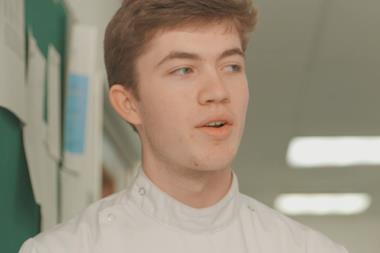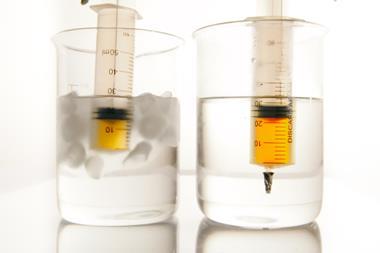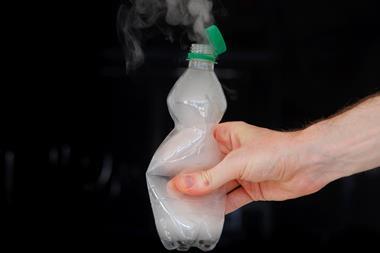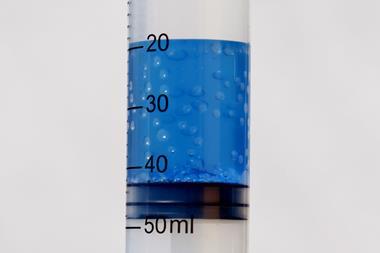Everything you need to know
-
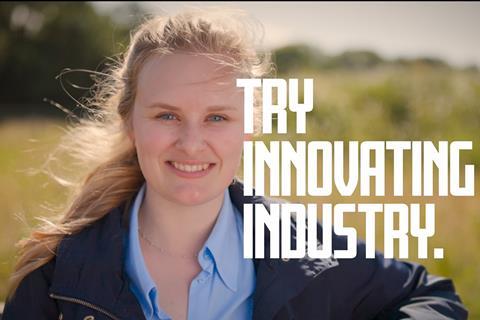
- Salary range: £25–40k
- Minimum qualifications: Degree-level qualifications (including master’s)
Undergraduate degree studied at: University of Leeds - Skills required: presenting, communication, decision making, practical, analytical
- Training required: Once I graduated, I joined EDF’s Science and Engineering Graduate Scheme where I had the opportunity to visit different power stations around the country and experience different teams.
- Work–life balance: Typical working hours are Monday to Friday 9–5 with some flexibility. There are also opportunities to participate in work-social activities eg BBQs and social netball team.
- Career progression: Professional registration and chartership with the RSC, technical development and leadership roles.
- Locations: Find related work experience positions using our map of employers
- Studied at: University of Leeds
More profiles like Beth's
What does a chemistry engineer do?
Chemistry is vital on a nuclear power station and impacts the whole of the station. Right now, my role is about setting up the chemistry operations to make sure that when the plant starts producing electricity, the operational chemistry team will have what they need to run it well.
How does nuclear power work?
Nuclear power uses heat from a nuclear reaction to create steam. The nuclear fission of uranium atoms in the reactor produces lots of heat, which is used to boil water into steam. The steam spins the nuclear reactor’s turbines, which causes a magnet inside the generator to spin too, creating electricity. Across their whole lifecycle, nuclear power plants produce very little carbon dioxide compared to the amount of electricity they generate.
What do you like most about your job?
Chemists play a vital role in ensuring that the water used at the power station is the highest quality, which impacts the stability and efficiency of the nuclear power plant. I perform tests on water samples such as determining the pH and testing for impurities to ensure the water used for flushing pipework is clean, which prevents corrosion.
How is your job making the difference?
My job is contributing to the safe construction of a nuclear power station that will produce cleaner energy and help the UK to reach net zero by 2050. Without chemists testing the water quality at the power station, the metal components and pipework would corrode quickly.
What is your typical day like?
I’m usually on site three days a week and my time is split between our new temporary laboratory and the office. In the office, I write instructions for the lab, assessing the risks that arise from the use of hazardous substances and write specifications for operating the power station.
Who or what inspired you to work in chemical science?
I’ve always enjoyed science and trying to understand how things work. I also knew I wanted to do something more practical, which led me to study chemistry as it allowed me to spend some time working in the lab in addition to receiving lectures at university. I didn’t get into my top two university choices and ended up in clearing, which changed my original plan. However, I found a similar course at a different university and embraced the change in situation. While I was there, I did a placement year at EDF’s Sizewell B power station in the chemistry team. I loved this role and feeling like I was contributing to something impactful was one of the reasons I wanted to stay with EDF after my degree.
How did you get into your current role?
Once I graduated, I joined EDF’s Science and Engineering Graduate Scheme where I had the opportunity to visit different power stations around the country and experience different teams. This helped me to develop my knowledge and understanding of the power station as a whole. I then joined my current team as a chemistry engineer.
What barriers did you encounter on your journey into your role?
For me, the nuclear industry wasn’t widely advertised and I didn’t know anything about it. I stumbled across the industrial placement advert online and I’m so glad I did. I want other students to be aware of the industry so they can know about the diversity and variety of job opportunities available.
What advice would you give to a young person thinking of studying chemistry or considering a career in chemical science?
If you’re considering a career in chemistry, I’d say do it, especially in the nuclear industry because it’s a really good opportunity to help contribute to fighting climate change and producing cleaner energy to help achieve net zero.
What do you dream about doing further down the line?
My aim is to carry on making a difference to the planet by working as a chemist at Hinkley Point C.
Want to know more?
- Industrial placements at EDF
- Science and engineering graduate scheme
- Find out more about how nuclear power works.
- Find out more about nuclear fission.
Bethany Quinn, Chemistry Engineer at Hinkley Point C
Published September 2024








